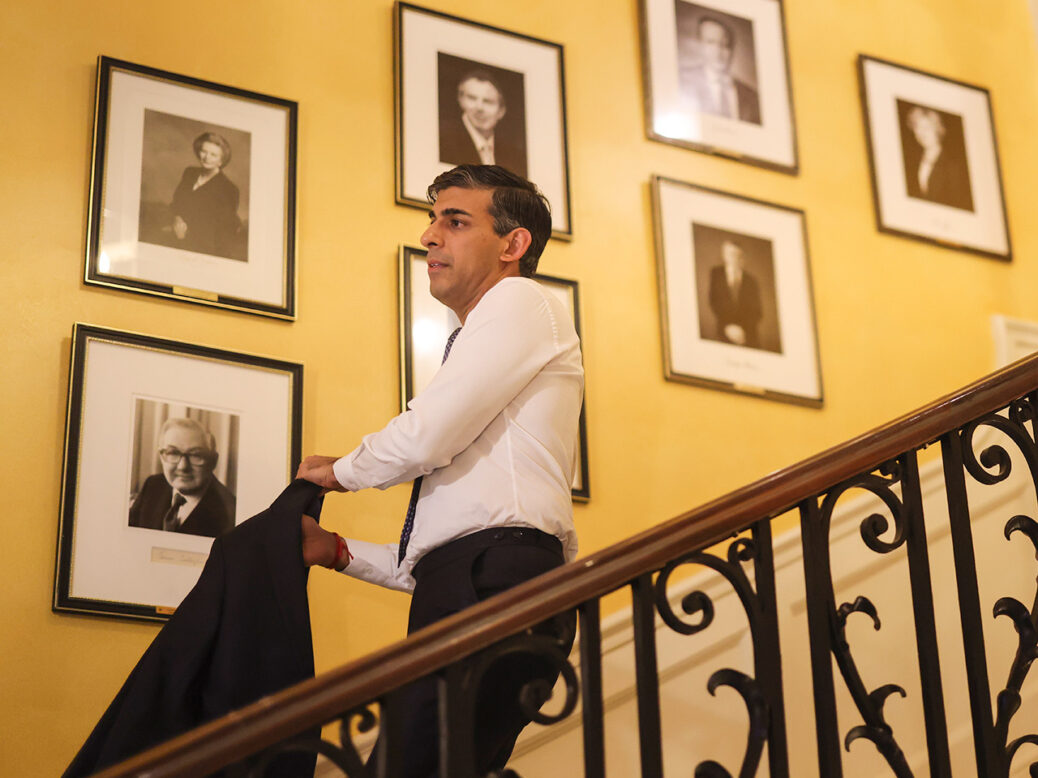
David Cameron’s return as Foreign Secretary transports the Conservative Party back to the early 2010s. The problem is that we are in 2023.
“It’s a slap in the face to the House of Commons. [Sunak] and Cameron don’t have a principle in their body. Even [Thatcher’s foreign secretary] Lord Carrington was seen as an anachronism.” That was the assessment from one former cabinet minister. All the MPs I spoke to yesterday were in disbelief, mixed with various amounts of delight, disgust and resignation.
A recurring concern is how the House of Commons will hold Lord Cameron to account. There is some chatter in Westminster about reforming Commons standing orders to allow a lord to appear. One exasperated lord told me: “The Commons will want to hold him to account. So instead of huffing and puffing why not change the rules?” Note, however, that there are relatively few MPs with a keen interest in foreign policy and Cameron will be called to appear before MPs at the Foreign Affairs Select Committee.
The greater threat to Sunak comes from his party’s right, not least because his peace offering yesterday was tokenistic: Esther McVey, an anti-wokist, was made minister without portfolio. Andrea Jenkyns is the first to publicly submit a letter of no confidence in Sunak. But a real rebellion has yet to materialise. Talk of a leadership challenge is hasty. In the words of one Braverman ally: “[Sunak’s] lost his senses. Suella is very popular with the public. But we won’t be doing letters or anything like that. What’s the point? We’d just lose even more seats.” Another Brexiteer MP said even the right of the party thought Braverman was “useless”.
[See also: The Tory right’s divided tribes]
This group now sees Sunak as the enemy but the liberal Conservatives are elated. From the perspective of those who recoiled at Braverman’s brashness, Sunak has restored a hero taken before his time by the Brexit vote. “I haven’t been this happy in a long time. I’m glad we are returning to the centre,” one seasoned Tory MP told me. Cameron, apparently, was also warmly received in the Foreign Office. One government insider said civil servants were “brimming with delight, confidence and love” when Cameron addressed them en masse.
But if this is a return to the “centre”, what does that actually mean? Cameron promised to reduce immigration to the tens of thousands as prime minister (meanwhile net immigration was 606,000 in 2022). He pursued a fiscal conservatism that resulted in severe cuts to the capacity of the state. He gutted welfare. He committed to replacing the Human Rights Act with a British bill of rights. He’s as much a “centrist” as Sunak is.
One cabinet minister remarked to me last night that Cameron’s appointment represents “a rigorous assertion of ability and merit”. In reality, this is confirmation that Sunak has abandoned the 2019 coalition and resorted to a politics unfit for a post-Brexit, post-austerity age. But at least Cameron looks the part.
This piece first appeared in the Morning Call newsletter; receive it every morning by subscribing on Substack here.
[See also: The left’s conservative turn]






